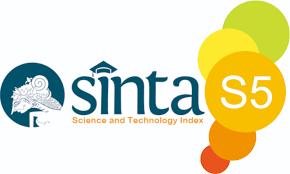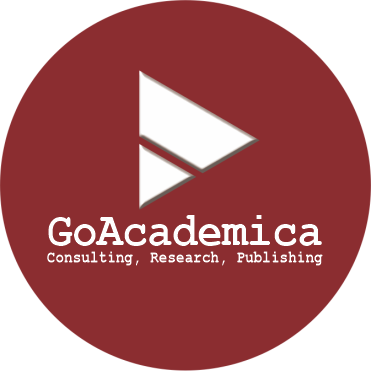UTILIZATION OF SOCIAL MEDIA IN QUR'AN LEARNING: A SYSTEMATIC STUDY OF POTENTIAL, RISKS, AND USAGE STRATEGIES
PEMANFAATAN MEDIA SOSIAL DALAM PEMBELAJARAN AL-QUR’AN: KAJIAN SISTEMATIS ATAS POTENSI, RISIKO, DAN STRATEGI PENGGUNAAN
Abstract
Digital transformation has brought significant changes to Quranic learning methods, including through the use of social media such as YouTube, Instagram, and TikTok. This study aims to systematically examine the potential, risks, and strategies for using social media in Quranic learning. The methods used are:Systematic Literature Review(SLR) using the PRISMA approach, which analyzed 35 articles published between 2018 and 2024 from the Scopus, Google Scholar, and Web of Science databases. The results show that social media has the potential to expand access to learning, strengthen learning communities, and increase the motivation of the younger generation through interactive approaches. However, risks were also identified, including the spread of invalid content, weakened scientific authority, and digital distractions. The literature recommends teacher training, collaboration with content creators, and a curriculum based on sanad and digital. This study emphasizes the importance of a structured strategy to make social media an effective means of learning the Quran while remaining grounded in scientific and spiritual values.
References
Azzimonti, M., & Fernandes, M. (2023). Social media networks, fake news, and polarization. European journal of political economy, 76, 102256. https://doi.org/10.1016/j.ejpoleco.2022.102256
Basir, A., Suri, S., An, A. N., Sholihin, R., & Hayati, H. (2022). The relevance of national education goals to the guidance of the Al-Quran and Al-Hadith. Linguistics and Culture Review, 122-137. https://doi.org/10.21744/lingcure.v6nS5.2088
Basir, A., Yahya, M. D., Mubarak, H., Akhyar, S., & AN, A. N. (2022). The relevance of the message of the Qur'an to the goals of national education: An overview of ummah's educational literacy. Linguistics and Culture Review, 92-105. https://doi.org/10.21744/lingcure.v6nS5.2059
Caidi, N., Nangia, P., Samson, H., Ekmekcioglu, C., & Olsson, M. (2025). Spiritual and religious information experiences. Journal of the Association for Information Science and Technology. https://doi.org/10.1002/asi.24983
Calis, H. (2022). The theoretical foundations of contextual interpretation of the Qur’an in Islamic theological schools and philosophical sufism. Religions, 13(2), 188. https://doi.org/10.3390/rel13020188
Di Domenico, G., Sit, J., Ishizaka, A., & Nunan, D. (2021). Fake news, social media and marketing: A systematic review. Journal of business research, 124, 329-341. https://doi.org/10.1016/j.jbusres.2020.11.037
Diana, A., & Azani, M. Z. (2024). The Concept and Context of Islamic Education Learning in the Digital Era: Relevance and Integrative Studies. Profetika: Jurnal Studi Islam, 25(01), 33-44. https://doi.org/10.23917/profetika.v25i01.4239
Hajli, N., Saeed, U., Tajvidi, M., & Shirazi, F. (2022). Social bots and the spread of disinformation in social media: the challenges of artificial intelligence. British Journal of Management, 33(3), 1238-1253. https://doi.org/10.1111/1467-8551.12554
Hakim, L. (2024). Educational Media in the Perspective of the Qur'an and Al-Hadith. EduLine: Journal of Education and Learning Innovation, 4(2), 294-303. https://doi.org/10.35877/454RI.eduline2705
Hamka, M., Agusman, A., & Nur, M. A. (2024). Building Civilization in the Era of Globalization Based on Knowledge Through Education and Dakwah. International Journal of Islamic Thought and Humanities, 3(1), 36-48. https://orcid.org/0000-0002-8197-4207
Harie, Y., Gautam, B. P., & Wasaki, K. (2023). Computer vision techniques for growth prediction: A prisma-based systematic literature review. Applied Sciences, 13(9), 5335. https://doi.org/10.3390/app13095335
Harisanty, D., Anna, N. E. V., Putri, T. E., Firdaus, A. A., & Noor Azizi, N. A. (2025). Is adopting artificial intelligence in libraries urgency or a buzzword? A systematic literature review. Journal of Information Science, 51(2), 511-522. https://doi.org/10.1177/01655515221141034
Heri, H., & Yaqinah, S. N. (2024). Popularity Of Da'wah Ustad Muhammad Ihsan As A Young Da'i Through Youtube Accounts In Lombok. TASAMUH, 22(2), 161-180. https://doi.org/10.20414/tasamuh.v22i2.11595
Lee, J., Kim, K., Park, G., & Cha, N. (2021). The role of online news and social media in preventive action in times of infodemic from a social capital perspective: The case of the COVID-19 pandemic in South Korea. Telematics and Informatics, 64, 101691. https://doi.org/10.1016/j.tele.2021.101691
López-Sánchez, J. A., Patiño-Vanegas, J. C., Valencia-Arias, A., & Valencia, J. (2023). Use and adoption of ICTs oriented to university student learning: Systematic review using PRISMA methodology. Cogent Education, 10(2), 2288490. https://doi.org/10.1080/2331186X.2023.2288490
Martina, N. H., & Hafidz, H. (2025). Utilization of Social Media as Learning Media for Islamic Religious Education at SMK Surakarta. Tarbiyah Wa Ta'lim: Jurnal Penelitian Pendidikan dan Pembelajaran, 12(1), 31-41. https://doi.org/10.21093/twt.v12i1.9825
Maulidi, A. R., & Jamalie, Z. (2023, May). Establishment of Social Skills in the Middle of Digital Technologies: A Quranic Approach. In 4th International Conference on Progressive Education 2022 (ICOPE 2022) (pp. 399-407). Atlantis Press. https://doi.org/10.2991/978-2-38476-060-2_36
Muizzudin, M., Auliya, H. Y. I., Muamala, S., Wahyudin, A. N., & Syahid, A. H. (2024). Islamic education information and communication system in the perspective of the Qur'an. Syiar: Jurnal Komunikasi dan Penyiaran Islam, 4(2), 123-136. https://doi.org/10.54150/syiar.v4i2.538
Nazalia, I., & Fitria, L. (2024). The Concept Of Education In The Qur'an: A Critical Study Of Al-Ghazali's Thinking. Didaktika: Jurnal Kependidikan, 13(2), 2253-2266. https://doi.org/10.58230/27454312.672
Nurmahyati, S. (2023). Educational Media Management from a Qur'anic Perspective. International Journal of Social Science and Religion (IJSSR), 109-132. https://doi.org/10.53639/ijssr.v4i1.134 j
Nursikin, M., & Nugroho, M. A. (2021). Internalization Of Qur'anic Values In The Islamic Multicultural Education System. Didaktika Religia, 9(1), 19-38. https://doi.org/10.30762/didaktika.v9i1.3276
Pasaleron, R., Afrianto, A., Junaidi, A., Rahman, I., & Susanti, W. (2023). Problems of Teachers and Students in Learning the Quran. Al-kayyis: Journal of Islamic Education, 1(1), 1-11. http://ojs.stai-bls.ac.id/index.php/ajie/article/view/62
Pasaleron, R., Rahman, I., Fitriani, F., & Irzain, I. (2023). Efek Kecerdasan Intelektual, Emosional, Dan Spiritual Terhadap Akhlak Peserta Didik Di Sekolah Menengah Atas. Al-Ashri: Ilmu-Ilmu Keislaman, 8(2), 71-77. http://ojs.stai-bls.ac.id/index.php/Al-Ashri/article/view/78
Putra, E., Rahman, I., Kustati, M., & Sepriyanti, N. (2024). Analisis Pembelajaran Haji dan Umrah pada Mata Pelajaran Fiqh di Sekolah Dasar. Menara Ilmu: Jurnal Penelitian dan Kajian Ilmiah, 18(2). https://doi.org/10.31869/mi.v18i2.5797
Rahmad, A., Rahmi, R., Nakita, D. S., Akbar, Z., & Rahman, R. P. I. (2021). Implementation of Learners' Methods of Memorizing the Qur’an at the Dar El-Iman Indonesia Modern Islamic Boarding School. Islamic Studies, 2622, 741x. http://ijmurhica.ppj.unp.ac.id/index.php/ijmurhica
Rahmah, H., Rahman, I., Nurhapipah, N., Erman, E., & Hasnah, R. (2023). Dinamika Pemikiran Ahlussunnah Wal Jama’ah Dalam Membangun Pemahaman Holistik Terhadap Moderasi Beragama. UNES Journal Of Social and Economics research, 8(1), 027-034.
Rahman, I., Kustati, M., & Gusmirawati, G. (2023). Pkm Peningkatan Kompetensi Baca Alqur'an Mahasiswa Unp Melalui Pendekatan Program Tahsin. https://doi.org/10.56670/jcs.v5i2.176
Rahman, I., Iskandar, M. Y., Kustati, M., & Sepriyanti, N. (2024). Sustainable Development: Implementation of The Talqin Method In Memorizing The Quran. Jurnal Kepemimpinan dan Pengurusan Sekolah, 9(1), 99-108. https://doi.org/10.34125/jkps.v9i1.355
Rahman, I., Kaema, M. T., Nurhapipah, N., Nelwati, S., Sabri, A., & Rahmanda, R. (2024). Systematic Literature Review: Analysis of Project-based Learning Models from Elementary to High School. Al-Ashri: Ilmu-Ilmu Keislaman, 9(2), 53-66. https://ojs.stai-bls.ac.id/index.php/Al-Ashri/article/view/119
Rahman, I., Nisa, K., & Saputri, R. E. (2020). Seven Students' Activities: A Case Study on Rumah Tahfidz An-Nur Daily Routine and Memorization Levels. International Journal of Multidisciplinary Research of Higher Education (IJMURHICA), 3(3), 110-120. https://doi.org/10.24036/ijmurhica.v3i3.184
Rahman, I., Zulmuqim, Z., & Masyhudi, F. (2023). Pengaruh Madrasah Nizamiyah Terhadap Perkembangan Pendidikan Islam Dan Ortodoksi Sunni. Unes Journal Of Social and Economics Research, 8(2), 1-14. https://www.ojs.ekasakti.org/index.php/UJSCR/article/view/402
Rasdiany, A. N., Akmal, F., Pasaleron, R., Dafrizal, D., Ningsih, R., & Rahman, I. (2024). Systematic Literature Review: The Impact of Social Competence on Teacher Communication Intelligence. Jurnal Kepemimpinan dan Pengurusan Sekolah, 9(2), 239-251. https://doi.org/10.34125/jkps.v9i2
Sabrina, V., Alias, M. F. B., Lenggogeni, P., Oktavia, G., Asril, Z., & Rahman, I. (2024). Analysis of the Relationship between Self-Regulated Learning and Students' Quran Memorizing Activities in Junior High Schools. Muaddib: International Journal of Islamic Teaching and Learning, 1(1), 40-48. https://doi.org/10.63061/muijte.v1i1.12
Saputra, W., Rahman, I., Zulmuqim, Z., Zalnur, M., Triana, N., & Mutathahirin, M. (2023). Islamic Personal Development Activities in shaping the Character of Students in Junior High Schools. Nida Al-Qur'an: Jurnal Pengkajian Islam, 4(2), 103-112. https://doi.org/10.63061/jpi.v4i2.25
Rabiu, A. A., El-Nafaty, N. U., Shariff, I. A., & Idriss, I. D. (2024). The Impact of Social Media on Qur'anic Studies in Northern Nigeria: An Assessment of its Challenges and Opportunities. Jurnal Usuluddin, 52(2), 107-134. https://doi.org/10.22452/usuluddin.vol52no2.5
Soomro, S. A., Casakin, H., Nanjappan, V., & Georgiev, G. V. (2023). Makerspaces fostering creativity: A systematic literature review. Journal of Science Education and Technology, 32(4), 530-548. https://doi.org/10.1007/s10956-023-10041-4
Sule, M. M., & Mainiyo, A. S. (2023). Effectiveness of Social Media Platforms in Disseminating Qur’anic Teachings among Contemporary Muslims. Spektra: Jurnal Ilmu-ilmu Sosial, 5(1), 47-64. https://doi.org/10.34005/spektra.v5i1.2668
Sulistyowati, S. (2024). Development and Innovation of Qur'anic Learning Methodologies in Indonesia. Al-Lubab: Jurnal Penelitian Pendidikan dan Keagamaan Islam, 10(2), 47-65. https://doi.org/10.19120/al-lubab.v10i2.5951
Susnjak, T. (2023). Prisma-dfllm: An extension of prisma for systematic literature reviews using domain-specific finetuned large language models. arXiv preprint arXiv:2306.14905. https://doi.org/10.48550/arXiv.2306.14905
Syukur, F. (2021). Mediatization of Islam in the Digital Era: Opportunity or Threat?. TAWASUT, 8(01). https://doi.org/10.31942/ta.v8i01.5325
Uswatussolihah, U., & Turhamun, T. (2024). Gender Representation in Da’wah Programs on RRI Purwokerto. Yinyang: Jurnal Studi Islam Gender dan Anak, 19(1), 119-150. https://doi.org/10.24090/yinyang.v19i1.10658
Varmazyari, H., & Mohammadi, A. M. (2025). A Corpus-Driven Study of Maleki and Saffarzadeh’s Translations of Fa as a Qur’anic Discourse Marker. Iranian Journal of Applied Language Studies, 17(1), 155-174. https://doi.org/10.22111/ijals.2025.46300.2366
Wardiman, D., & Yetri, A. (2024). Indonesian Muslim Societies in the Digital Age: Opportunities, Challenges, and Future Prospects. Digital Muslim Review, 2(2), 194-216. https://doi.org/10.32678/dmr.v2i2.46
Wirani, Y., Eitiveni, I., & Sucahyo, Y. G. (2024). Framework of Smart and Integrated Household Waste Management System: A Systematic Literature Review Using PRISMA. Sustainability, 16(12), 4898. Wirani, Y., Eitiveni, I., & Sucahyo, Y. G. (2024). Framework of Smart and Integrated Household Waste Management System: A Systematic Literature Review Using PRISMA. Sustainability, 16(12), 4898. https://doi.org/10.3390/su16124898
Yang, J., & Tian, Y. (2021). “Others are more vulnerable to fake news than I Am”: Third-person effect of COVID-19 fake news on social media users. Computers in Human Behavior, 125, 106950. https://doi.org/10.1016/j.chb.2021.106950
Yasser, M., Putra, A., & Qardlawi, M. Y. (2024). Animal Rights In Islam: Sarra Tlili's Criticism of the Anthropocentric Reading of the Qur'an. AL QUDS: Jurnal Studi Alquran dan Hadis, 8(3), 623-642. https://doi.org/10.29240/alquds.v8i3.9660



















